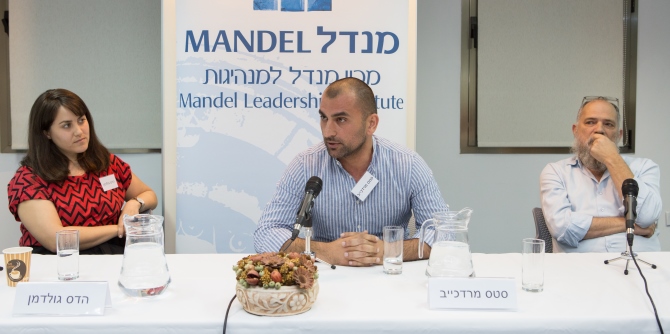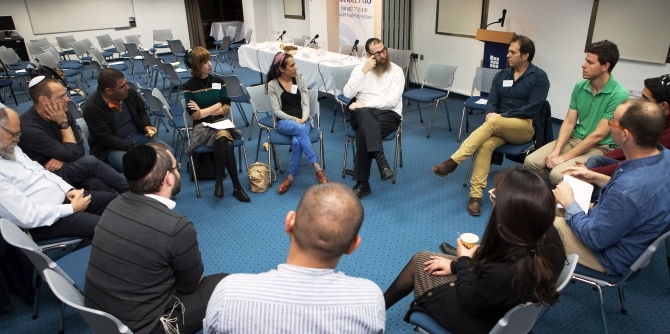On March 12, 2018, the chair of the National Council of Mission-Driven Communities in Israel, and representatives of the Council's member organizations participated in a Mandel Platform event that focused on mission-driven communities of different types and from a variety of sectors, which have emerged in Israel in recent decades. The phenomenon of mission-driven communities began in youth movements and kibbutz movements, both secular and religious, which gave rise to cooperative educational groups and religious garinim (social-activist communal groups). Today, mission-driven communities can be found in other streams as well: garinim of Druze residents, communities of Ethiopian Israelis and Jews from the Caucuses, secular communities, communities of people who have left Orthodoxy, and more.
Adam Lattarulo, chair of the National Council of Mission-Driven Communities, spoke about the collaboration among the Council’s member organizations, who work in cooperation despite their significant differences. “A mission is essentially a way of life – everything you do, or most of what you do, is done within the context of how it characterizes the new society that you’re striving to create,” he said.

“What mission-driven communities have in common, alongside the huge differences among them, is their total commitment to social change," said
Dr. Nir Michaeli, a visiting faculty member at the Mandel Leadership Institute, who organized and led the event. "This commitment is based on three principles: The first involves living in the geographical-socioeconomic periphery, based on an understanding that social change doesn’t come from professional intervention but from the experience of living daily life in relationship with other people. The second is the principle of community – the understanding that change is something we do together with others. And the third is the idea of mission, and the understanding that being mission-driven is not a one-time act but a lifelong project.”
During the second part of the event, the participants were divided into discussion groups in which Council members spoke about their own organizations and answered questions. The discussions raised serious questions, such as: What are the levels of trust and/or suspicion experienced by these groups from local residents? What differentiates a mission-driven community from other communities? What is the relationship between the need to be special and unique and the desire to integrate into and influence the environment?

